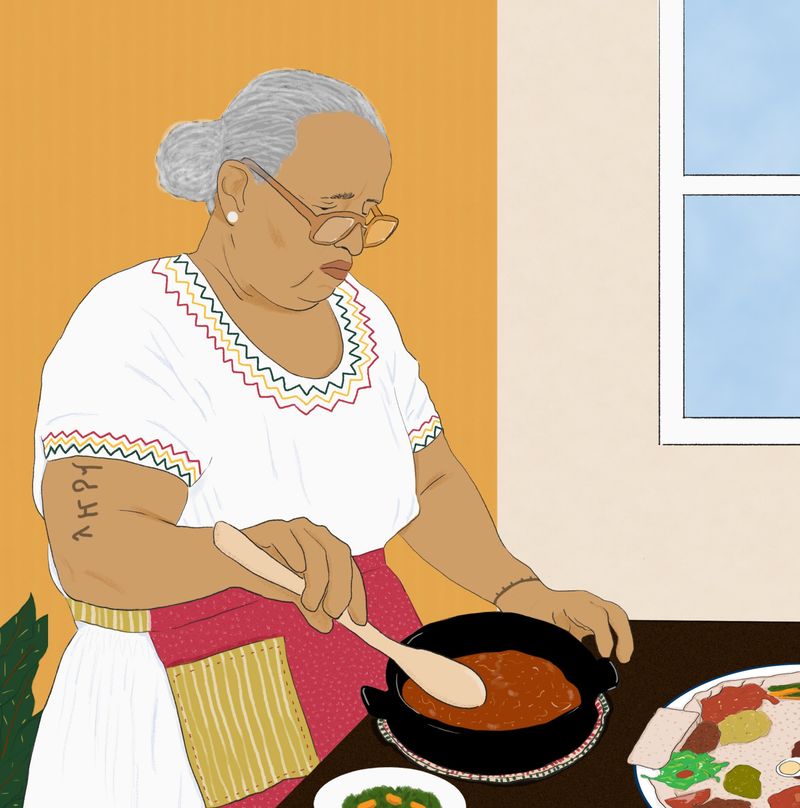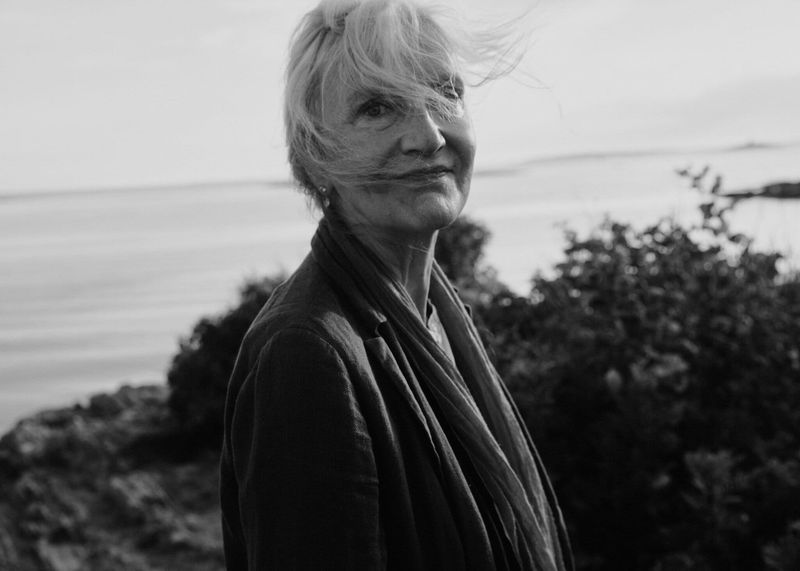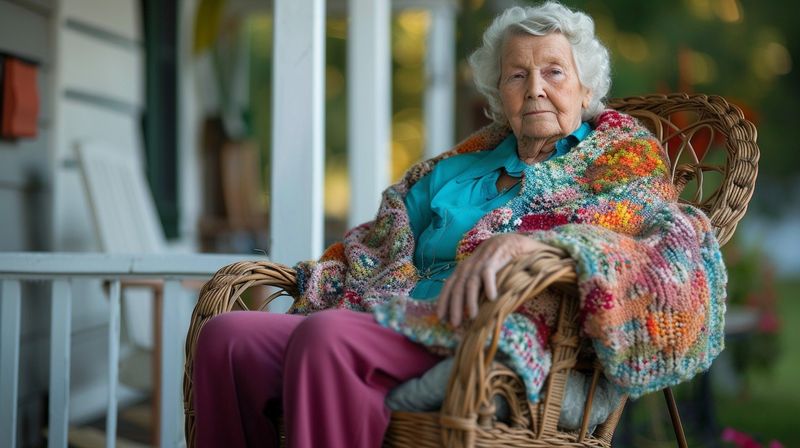With age comes clarity—and for many women, that clarity shines brightest when reflecting on past relationships. These insights aren’t about bitterness or regret for the sake of regret—they’re about growth.
After years of lived experience, love, heartbreak, and healing, older women have a powerful perspective on what truly matters in a relationship—and what they wish they had known sooner.
The reflections that follow are not cautionary tales, but deeply human moments of realization. They speak to patterns many of us fall into: staying too long, silencing our needs, mistaking intensity for intimacy, or shrinking ourselves to fit into someone else’s life.
Estes são the quiet regrets that echo later in life—not because of missed chances, but because of missed alignment.
By sharing these 22 common relationship regrets, the goal is simple: to pass on wisdom. To help others make different choices. And to remind anyone reading—especially younger women—that it’s never too late to choose yourself.
1. Staying when the love turned to habit
Comfort can slowly replace connection, and routine can be mistaken for love. Many older women look back and realize that staying in a relationship long after affection faded was a disservice to both themselves and their partner.
The relationship turned into a series of predictable rituals—dinners eaten in silence, conversations that lacked depth, time spent together but not truly shared. They stayed because it felt easier than starting over, mistaking stability for happiness. The regret doesn’t come from loyalty, but from allowing complacency to take root where love once bloomed.
They now understand that love, to remain alive, needs intention and nurturing. A stagnant relationship can become a quiet form of loneliness, and stepping away from it might have offered the chance to rediscover joy, both independently and with someone new. The reflection brings clarity: staying in love should never be confused with simply staying.
2. Thinking loyalty meant staying silent
The belief that loyalty means silence is a lesson learned the hard way. Many older women regret the times they kept their thoughts and feelings bottled up, fearing that speaking up would cause conflict or seem disloyal.
But in staying quiet, they denied their own needs and allowed unresolved issues to fester. They mistook withholding truth for being supportive, not realizing that honesty is a deeper form of commitment. Silence didn’t bring peace—it created distance. Over time, their resentment grew, and communication became strained.
The regret lies in not recognizing that real loyalty involves being open, vulnerable, and honest—even when it’s uncomfortable. These women now see that expressing dissatisfaction or concern is a vital part of healthy relationships. Holding back for the sake of harmony only postpones the inevitable cracks. They share this insight to encourage others to speak their truth early, while change is still possible.
3. Confusing drama for passion
A common regret is mistaking emotional turbulence for romantic intensity. The arguments, reconciliations, and rollercoaster emotions once felt like the pulse of a passionate connection. But with time, the illusion faded.
Drama, they now realize, isn’t proof of love—it’s often a symptom of instability. Real passion doesn’t burn you out; it builds you up. Looking back, the rush of adrenaline that came with every fight or crisis masked a lack of emotional safety. The excitement was fleeting, but the exhaustion was lasting. These women regret spending years chasing highs and tolerating lows, when what they really needed was steadiness, trust, and calm.
They’ve come to value the quiet kind of love—the one that brings comfort instead of chaos. The reflection serves as a reminder that love shouldn’t feel like a constant storm. True passion can exist without drama, and real connection thrives in peace, not in chaos.
4. Shrinking so their partner could shine
Dimmed dreams and swallowed ambitions haunt the memory of many relationships. A recurring regret among older women is how often they made themselves smaller so their partner could stand taller. They downplayed their achievements, sidelined their passions, and deferred dreams—not out of lack of drive, but to support someone else’s spotlight.
What once felt like love or compromise now feels like self-abandonment. They look back and see how they silenced their own voice, hoping their sacrifices would strengthen the relationship. Instead, it bred resentment and left them feeling unseen. This regret isn’t rooted in generosity—it’s in losing themselves in the name of love.
They now understand that true partnership should elevate both people, allowing each to grow, shine, and feel fulfilled. A relationship should never come at the cost of one’s identity. Their reflection urges others to nurture their own light, even within love.
5. Ignoring how lonely they felt
Loneliness isn’t always about being alone—it can thrive in the space between two people. Many women now recognize how isolated they felt in relationships that looked fine on the outside. Emotional connection had faded, conversations became surface-level, and support felt one-sided. But rather than face this truth, they convinced themselves it was normal.
They wore a brave face, suppressed their feelings, and called it independence. In hindsight, they realize that ignoring loneliness didn’t make it go away—it only made it harder to confront later. The regret isn’t just about being emotionally neglected; it’s about not acknowledging their own needs.
These women now understand that emotional intimacy matters just as much as physical presence. They encourage others to check in with themselves and be honest about their sense of connection. Ignoring loneliness in a relationship doesn’t preserve love—it erodes it.
6. Saying yes when they wanted to say no
Many older women reflect on how often they prioritized politeness or peace over personal boundaries. Saying “yes” when their instincts screamed “no” became a habit rooted in fear—fear of rejection, disappointment, or being seen as difficult.
Over time, this led to a subtle erosion of self-respect. They gave too much, too often, and often to people who didn’t appreciate or reciprocate. The regret lies not just in the individual compromises but in the cumulative loss of agency and identity.
They now understand that saying “no” isn’t selfish—it’s self-protective. It’s a boundary that honors inner truth. Learning to say no earlier could have prevented burnout, resentment, and unfulfilling relationships. This reflection is a call to reclaim the power of choice, to recognize that authentic love and respect exist in relationships where both people feel safe enough to be honest—even when the answer is “no.”
7. Letting go of friendships for someone else’s comfort
Friendships often suffer in the shadow of romantic relationships, especially when a partner views outside connections as a threat. Many women now regret letting go of lifelong friends to appease jealous or controlling partners.
The early excuses—they’re just being protective, it’s just temporary—eventually gave way to distance and disconnection. Looking back, they see how isolating that decision was. Friendship is not just social—it’s emotional sustenance, a vital thread in the fabric of well-being. These relationships offered laughter, perspective, and unconditional support, which they only fully appreciated once they were gone.
The regret is not just about losing those friends, but about losing pieces of themselves in the process. They now understand that a healthy partnership should embrace and encourage outside connections. The lesson is clear: love should never require isolation, and friendship should never be a casualty of romance.
8. Hoping time would fix what effort didn’t
There’s a quiet regret that comes from waiting—for things to get better, for problems to resolve themselves, for change to happen without effort. Many women now realize they placed too much faith in time, assuming it would smooth over rough patches.
But time alone doesn’t heal relationship wounds; it only stretches the silence between conversations that never happened. They spent years hoping things would shift, only to see patterns repeat and needs go unmet.
The realization is sobering: without intention and consistent effort, nothing changes. This regret is rooted in the passive waiting that replaced active engagement. They now know that real growth requires work from both people—not just patience, but presence. It’s a reminder that love can’t survive on autopilot. The lesson they pass on is simple: don’t rely on time to do what only effort can.
9. Accepting apologies without changed behavior
Apologies can be powerful—when they come with accountability and change. But many older women regret how often they accepted apologies that led nowhere. They clung to the hope that words alone signaled transformation, only to find themselves stuck in cycles of repeated hurt.
Saying “I’m sorry” became a band-aid, not a solution. Over time, they realized that real remorse shows up in behavior, not just in speech. The regret stems from confusing temporary regret with true accountability. They now understand that forgiveness doesn’t mean accepting the same treatment again and again.
It’s not about being harsh—it’s about being wise. They urge others to listen closely, not just to what’s said, but to what’s done afterward. A heartfelt apology means little without the willingness to change. The lesson here? Don’t confuse words for growth—and don’t trade peace of mind for promises that don’t stick.
10. Not trusting their own gut
Hindsight often confirms what instinct already knew. Many women look back on their relationships and realize their gut was right all along. Whether it was a subtle feeling of unease, a moment of doubt, or a persistent internal nudge, they dismissed it in favor of logic or hope.
They told themselves they were being paranoid or overly sensitive, only to find out later that those instincts had been spot-on. The regret isn’t just about what happened—it’s about ignoring the one voice that was trying to protect them: their own.
They’ve since learned that intuition is rarely loud, but it’s deeply wise. Trusting it sooner could have saved them heartache and time. Now, they advocate for honoring that internal compass, recognizing that self-trust is foundational in any relationship. The takeaway is clear: when something feels off, don’t brush it aside. Listen, and act accordingly.
11. Thinking they could love someone into being better
The belief that love has the power to transform another person is a romantic ideal that many women once held onto. They poured energy, time, and devotion into partners they hoped would change—be more attentive, more responsible, more emotionally available.
They believed that if they loved hard enough, the other person would eventually become the version they envisioned. But over time, it became clear that love, while powerful, isn’t a fix. Change must be self-motivated.
The regret isn’t in the love given—it’s in the emotional toll of investing in someone who wasn’t ready or willing to grow. They now understand that it’s not their job to heal or reshape anyone. Loving someone should never come at the cost of your own peace. The wisdom gained is this: support your partner, yes—but don’t build your life around potential that may never materialize.
12. Tolerating emotional crumbs
Emotional neglect doesn’t always look like cruelty—it often arrives in the form of “just enough.” Many women now regret how long they stayed in relationships where they received only the bare minimum of affection, attention, or effort.
A few kind words, occasional gestures, or rare good days made them hold on, convincing themselves it was enough. But deep down, they felt starved. The love they settled for was not fulfilling—it was survival-level affection that left them constantly questioning their worth.
The realization came with time: love shouldn’t feel like rationing. True connection isn’t about scarcity—it’s about abundance. The regret lies in not demanding more, in accepting less than they gave. They now believe that it’s better to be alone than to constantly feel like you’re asking for scraps. Real love fills you, it doesn’t leave you hungry.
13. Calling it “normal” when it felt like neglect
Many older women look back and realize how often they rationalized neglect by calling it “normal.” The absence of emotional support, the disinterest in conversation, the lack of physical affection—they told themselves it was just what long-term relationships looked like.
They feared being seen as unrealistic or demanding, so they normalized behaviors that, in truth, hurt them deeply. The regret stems from gaslighting themselves into accepting less than they needed. Over time, they’ve learned that consistency and care should never fade with time—they should deepen. What they once accepted as the standard now looks like slow emotional erosion.
They share this wisdom to remind others that just because something is common doesn’t mean it’s healthy. Love should not be cold, distant, or indifferent. Relationships evolve, but neglect should never be part of the equation.
14. Prioritizing someone else’s needs every time
Selflessness, when practiced in excess, becomes self-neglect. Many women reflect on how often they made their partner’s needs, dreams, and desires more important than their own. They thought it was love—giving without expecting, accommodating without pause.
But eventually, it left them feeling invisible. Their own goals were shelved, their wellbeing sacrificed, and their identity dimmed. The regret doesn’t come from loving generously—it comes from forgetting themselves in the process.
They’ve since learned that healthy relationships are built on reciprocity, not martyrdom. Prioritizing yourself isn’t selfish—it’s necessary. It ensures you show up whole, fulfilled, and capable of giving love without resentment. They now advocate for balanced relationships where mutual support and respect are the norm. The lesson is clear: you can’t pour from an empty cup, and love should never cost you your sense of self.
15. Waiting too long to walk away
Staying too long in the wrong relationship is a regret that echoes across generations. Many women reflect on the years spent waiting for a partner to change, for the relationship to improve, for their own courage to rise. Leaving felt daunting, and the fear of the unknown outweighed the dissatisfaction of the present.
But in hindsight, the biggest regret isn’t the end itself—it’s all the time lost before it. They realize they held on to hope that masked the truth: the relationship had already run its course. They’ve since come to understand that walking away isn’t giving up—it’s choosing growth.
Staying out of fear or habit only delays healing. Their insight is a gentle push to others who might feel stuck: don’t let fear of the future keep you tethered to unhappiness. Leaving takes strength—but staying too long can slowly wear it away.
16. Believing that being needed was the same as being loved
Need and love are often tangled, but they are not the same. Many women once believed that being relied upon—emotionally, financially, or practically—was a sign of being deeply loved. They became indispensable, solving problems and holding things together, mistaking that role for connection.
Over time, they realized the difference: love is a choice, not a dependency. Being needed felt meaningful at the time, but it eventually revealed itself as a one-sided dynamic. The relationship wasn’t about partnership—it was about reliance. The regret is in confusing responsibility with intimacy.
They now understand that true love doesn’t stem from obligation; it comes from mutual respect and presence. Being needed might feel important, but it’s not the same as being cherished. They encourage others to seek love that exists beyond utility—a love that says, “I want you,” not just, “I need you.”
17. Apologizing for their ambition
Ambition was often seen as too much—too bold, too threatening, too inconvenient. Many women now regret the times they downplayed their goals or apologized for their drive to make others feel comfortable. They sidestepped promotions, turned down opportunities, or kept dreams on the back burner so their ambition wouldn’t rock the relationship.
At the time, it felt like compromise. In retrospect, it feels like suppression. The regret lies in all the potential left unexplored and the fulfillment delayed. They now know that a healthy relationship celebrates each person’s aspirations, not fears them.
They’ve learned to be proud of their ambition and view it as a strength, not a liability. Their message to others is clear: never shrink to make someone else feel taller. Ambition is not something to apologize for—it’s something to honor, nurture, and pursue unapologetically.
18. Avoiding tough conversations to keep things “nice”
Conflict avoidance is a form of emotional procrastination. Many women now reflect on how often they sidestepped difficult conversations to maintain surface-level peace. The fear of rocking the boat kept them quiet about their needs, concerns, and frustrations. But in trying to keep things “nice,” they sacrificed authenticity.
Over time, unspoken words turned into resentment, and the relationship suffered silently. The regret isn’t just about the things left unsaid—it’s about what those silences cost: deeper connection, personal clarity, and sometimes even the chance to fix what was broken.
They now believe that honesty, even when it’s uncomfortable, is a form of care. Avoiding discomfort doesn’t protect a relationship—it weakens it. The advice they offer is simple: say the hard thing, ask the awkward question, share the inconvenient truth. Because real connection lives in those conversations we’re most afraid to have.
19. Holding on to relationships they’d already outgrown
Familiarity has a powerful pull. Many women admit they stayed in relationships long after they stopped growing, clinging to history and comfort rather than embracing change. They feared what life would look like without the relationship, even when it no longer served their emotional needs.
The regret comes from ignoring the signs—boredom, emotional stagnation, mismatched goals—because letting go felt like failure. But they’ve come to see that staying in a space they’ve outgrown only stunts further growth.
A relationship shouldn’t feel like a cage, but a catalyst. They now understand that growth sometimes requires release—that holding on too tightly can hold you back. Letting go doesn’t diminish what once was; it honors what’s no longer aligned. The lesson they carry forward is this: when a relationship no longer fits, it’s okay to walk away with gratitude and grace.
20. Fearing being alone more than being unhappy
Fear of solitude kept many women in relationships that brought more stress than joy. They convinced themselves that companionship, even when unsatisfying, was better than facing the unknown. The silence of being alone felt scarier than the noise of an unfulfilling relationship. Looking back, they realize that this fear cost them peace, personal growth, and self-discovery.
The regret lies in not realizing sooner that solitude can be a powerful place—not lonely, but liberating. It’s where confidence is rebuilt and self-worth rediscovered. Many now say that the most transformative times of their lives began when they embraced being on their own.
They found that happiness is not tied to another person, but rooted in their relationship with themselves. Their advice is clear: don’t stay in something just to avoid being alone. Being alone is not a failure—it can be the beginning of everything you truly need.
21. Missing Out on Personal Growth
As time passes, some women reflect on how they sacrificed their personal growth for the sake of relationships. The emotional space needed for self-discovery was often eclipsed by the demands of being a partner.
Personal ambitions took a backseat, leaving a lingering sense of what might have been. This realization often comes with a renewed dedication to pursue long-abandoned dreams.
Like a book with unfinished chapters, the journey of self-exploration remains a vital aspect of one’s life, encouraging future generations to balance love and growth.
22. Compromising Too Much on Values
Some women look back and see how they compromised on core values to keep the peace. This often led to an internal conflict that eroded their sense of identity over time.
In striving for harmony, essential beliefs were neglected, leading to a loss of self. The journey to reclaim one’s values becomes a powerful narrative of self-respect.
Gardens grow best when each plant has space to thrive, much like relationships that honor individual convictions. Embracing authenticity remains a timeless lesson for future partnerships.























